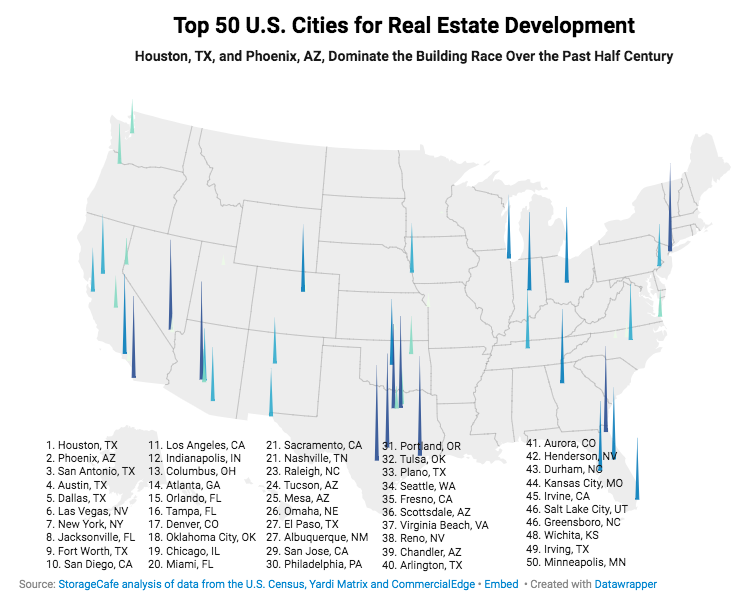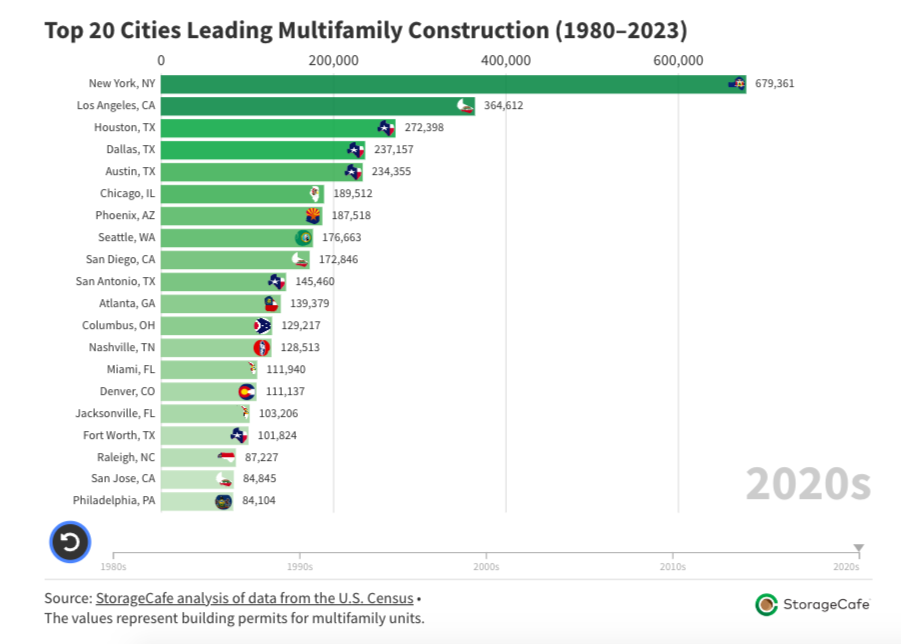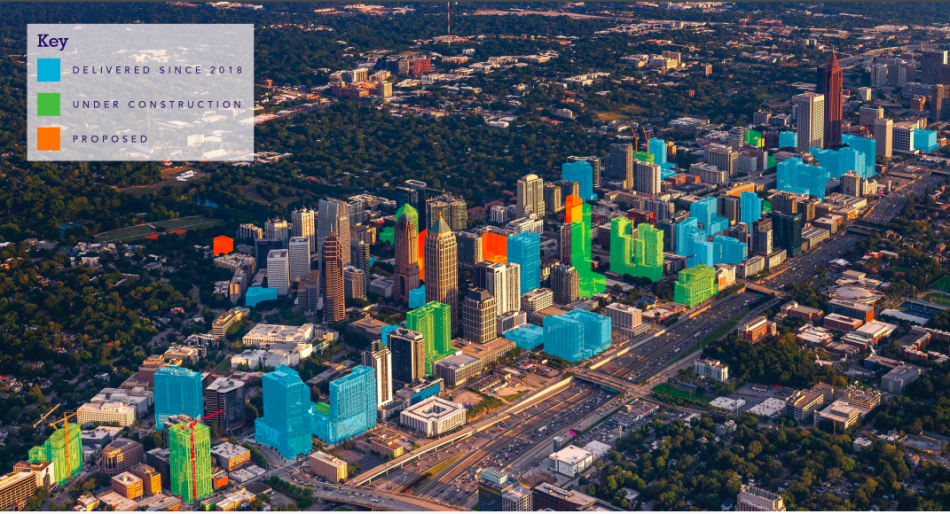Anyone who’s considered “Atlanta, Georgia” synonymous with “Sunbelt boomtown” in recent decades might find the results of a new national, urban development analysis surprising. At least on the surface.
A team of analysts with StorageCafe, an online platform with nationwide storage unit listings, studied 44 years’ worth of real estate development data, dating back more than four decades, that shows Atlanta ranked 14th nationally when all categories are combined.
The rankings were based on building permit numbers pertaining to office, retail, multifamily, single-family, industrial, and self-storage development between 1980 and December 2023. The largest 100 cities in the U.S. with populations of more than 200,000 were analyzed.
“Atlanta’s sheer amount of new commercial, industrial, and multifamily construction has vaulted [it] into the ranks of real estate powerhouses like Dallas, Austin, and Miami,” StorageCafe reps noted in an email to Urbanize Atlanta.
But still—14th place?
In a city that’s been transformed (by a population that’s tripled) since the early 1990s, let alone 1980?
It’s important to note the City of Atlanta—a relative sliver of land mass, with a growing but still meager population of roughly 532,000—was studied in this case, and not the broader metro. (The City of Phoenix, for instance, has an estimated population of 1.6 million—more than three times larger than the City of Atlanta’s, but in a significantly smaller metro area. And metro Dallas’ Fort Worth ranked No. 9 overall in the StorageCafe study—apart from neighboring Dallas at No. 5.)
Still, the City of Atlanta managed to hold its own in the rankings.
One highlight was more than 108 million square feet of office space delivered in the city since 1980—good for third position nationally in that sector, per the study.
Atlanta’s 139,000 multifamily units that have cropped up in the past five decades—11th most nationwide—have “dramatically reshaped [the city’s] skyline,” analysts noted.
The 2000s were Atlanta’s peak decade for the multifamily boom, with more than 5,700 permits issued on average per year.
That pace slowed to about 3,660 permits annually in the 2010s. But following the pandemic, multifamily development has bounced back, with the annual average this decade now north of 4,850 permits.
For better or worse, single-family construction has been a different story since 1980. The City of Atlanta has issued just 29,000 standalone home permits in that timespan. (Compare that with 215,000 permits in Phoenix, the top city in that sector, or No. 2 Houston’s 166,200 homes.)
New retail space—grappling with an era of e-commerce and shifting consumer habits—has been another low point. Atlanta ranks 16th nationally for new retail space since 1980, but its annual average of 291,000 square feet delivered in the 2020s marks a 45 percent decrease from the teens and a five-decade low, according to the study.
Big picture, analysts found that Southern and Southwestern cities dominated the growth rankings, snatching 15 of the country’s top 20 slots, with Atlanta included.
“As one of the Sunbelt’s biggest boomtowns,” StorageCafe reps wrote, “Atlanta’s housing market has been buoyed by strong demand, but new development still struggles to keep pace with rapid population and job growth.”
...
Follow us on social media:
Twitter / Facebook/and now: Instagram
• Atlanta declared No. 2 most livable city in U.S. for 2024 (Urbanize Atlanta)









